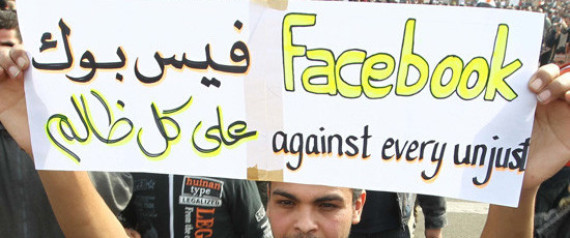Washington: US President Barack Obama heard echoes of history in the way Egyptians brought about change through the "moral force of nonviolence" like India's Mahatma Gandhi "leading his people down the path of justice."

In Egypt, it was the moral force of non-violence - not terrorism, not mindless killing - but non-violence, moral force that bent the arc of history toward justice once more, Obama said.
"Egyptians have inspired us, and they've done so by putting the lie to the idea that justice is best gained through violence," he said in praise of the Egyptian revolution hours after President Hosni Mubarak finally stepped down Friday.
"For in Egypt, it was the moral force of nonviolence - not terrorism, not mindless killing - but nonviolence, moral force that bent the arc of history toward justice once more," Obama said in a six-minute speech from the White House.
"And while the sights and sounds that we heard were entirely Egyptian, we can't help but hear the echoes of history - echoes from Germans tearing down a wall, Indonesian students taking to the streets, Gandhi leading his people down the path of justice," Obama said.
"As Martin Luther King said in celebrating the birth of a new nation in Ghana while trying to perfect his own, "There is something in the soul that cries out for freedom," he said.
"Those were the cries that came from Tahrir Square, and the entire world has taken note.
"Today belongs to the people of Egypt, and the American people are moved by these scenes in Cairo and across Egypt because of who we are as a people and the kind of world that we want our children to grow up in," Obama said.

Protesters, whose agitation at Tahrir Square in downtown Cairo turned 18 days, rejoiced through Friday night and were still at the Square at Saturday dawn, unable to believe that they had created history.
"The word Tahrir means liberation. It is a word that speaks to that something in our souls that cries out for freedom."
"And forevermore it will remind us of the Egyptian people-of what they did, of the things that they stood for, and how they changed their country, and in doing so changed the world," Obama said.
In Tehran, Iran congratulated the Egyptian people on their "victory." "We congratulate the great nation of Egypt on this victory and we share their happiness," Iranian Foreign Minister Ali Akbar Salehi said in a statement, according to the Press TV.
Salehi also sought to draw a connection with the 32nd anniversary of the Islamic Revolution in Iran and Mubarak's resignation.
"Today, our dear people with their millions-strong turnout [in Friday's demonstrations] while hailing the glorious Islamic Revolution across Iran, announced their support for the brave and justice-seeking movement by the history-makers of Egypt."
Salehi also called on the Egyptian army to join the people in their pro-democracy movement.
The channel also quoted Iran's National Security Council secretary Saeed Jalili as saying: "The United States and Europe must be answerable to the Egyptian people for supporting a dictatorship for 30 years."
Meanwhile, Russian Foreign Minister Sergei Lavrov said on Friday that he expected Egyptian authorities would ensure the normal functioning of governmental bodies.

Young men and women thronged Tahrir Square to begin a new chapter in Egypt's history as President Hosni Mubarak stepped down and fled Cairo. Pictures: Reuters
The current events in Egypt are evidence that "the existing government is approaching the problems responsibly and is opting to contribute to an intra-national agreement".
Lavrov also said he hopes that the country's opposition will be ready to stabilise the situation.
"[We] expect that all the latest events will help to reestablish stability, will ensure the normal functioning of all authoritative bodies and that not only structures of the current government but also opposition powers will express their readiness to stabilise the situation," Lavrov said.
In a related development, the Swiss government has decided to block any assets that may be held in Switzerland by Egyptian president Hosni Mubarak, Foreign Minister Micheline Calmy-Rey said on Friday.
The minister said that a decree was issued shortly after Mubarak stepped down Friday to identify and block any assets belonging to the Egyptian president and his family.
It's the same law that was applied in January to ousted Tunisian president Zine el-Abidine ben Ali and incumbent Ivory Coast leader Laurent Gbagbo, whose Swiss assets were frozen.
Bern has in recent years enacted legislation making it easier to return illegally obtained assets of corrupt leaders to their countries' coffers, on condition the funds are used for the wellbeing of the citizens.
Mubarak's wealth has long been a subject of speculation. According to media reports, he and his family own assets worth more than $40 billion.
According to the Swiss National Bank, Egyptian deposits in Swiss bank accounts totalled 3.6 billion Swiss francs ($3.7 billion).
Source: IANS




















